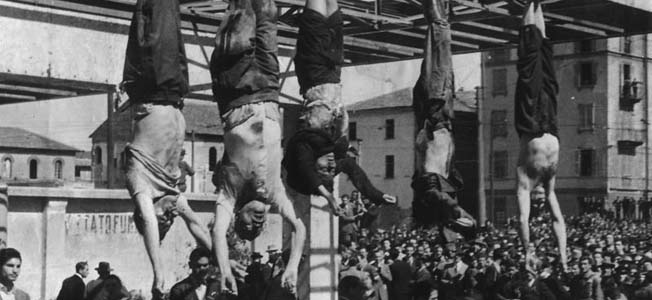The Rise and Fall of Benito Mussolini
Benito Mussolini, the fascist dictator who ruled Italy from 1922 to 1943, met a violent end in the closing days of World War II. His execution marked the culmination of a dramatic life journey from socialist journalist to authoritarian ruler whose alliance with Nazi Germany led Italy into a devastating war.
Early Life and Political Beginnings
Born in 1883 in Predappio, Italy, to a blacksmith father and teacher mother, Mussolini began his political career as a socialist. Initially working as a schoolteacher, he found his true calling in journalism. As editor of the socialist newspaper “Avanti!”, Mussolini was initially opposed to Italy’s involvement in World War I but later changed his position, leading to his expulsion from the Socialist Party.
After serving in World War I and being wounded, Mussolini returned to politics with a newfound nationalism. In 1919, he founded the Fascist movement, which attracted discontented war veterans and capitalized on fears of communism and economic instability.
Rise to Power
Mussolini’s path to power accelerated with the March on Rome in October 1922, when thousands of his black-shirted followers descended on the capital. King Victor Emmanuel III, fearing civil war, appointed Mussolini as Prime Minister. Once in power, Mussolini systematically dismantled Italy’s democratic institutions, transforming the country into a one-party dictatorship by 1925.
Styling himself “Il Duce” (The Leader), Mussolini sought to revive the glory of the Roman Empire. His regime was characterized by nationalist propaganda, state control of industry, aggressive foreign policy, and the violent suppression of opposition.
Fascist Rule and World War II
Despite some early economic successes and public works programs, Mussolini’s rule brought Italy increasing international isolation. His invasion of Ethiopia in 1935 drew widespread condemnation. By 1936, Mussolini had formed the “Axis” alliance with Nazi Germany, a fateful decision that would eventually lead to Italy’s downfall.
When Germany invaded Poland in 1939, Mussolini initially kept Italy out of the conflict. However, hoping to share in the spoils of what appeared to be a quick German victory, he declared war on France and Britain in June 1940. This decision proved disastrous as Italian forces performed poorly, requiring German support in North Africa and the Balkans.
Downfall
By 1943, with Allied forces invading Sicily and popular support waning, Mussolini was deposed by the Grand Council of Fascism and arrested on the king’s orders. In a dramatic turn of events, German paratroopers rescued Mussolini and installed him as the puppet leader of the “Italian Social Republic” in northern Italy.
Execution
As Allied forces pushed northward through Italy in April 1945, Mussolini attempted to flee to Switzerland with his mistress Clara Petacci. On April 27, 1945, they were captured by Italian partisans near Lake Como. The following day, April 28, Mussolini and Petacci were executed by firing squad in the small village of Giulino di Mezzegra.
Their bodies were transported to Milan, where they were hung upside down in Piazzale Loreto, the same square where fascists had displayed the bodies of executed partisans the previous year. The public display of Mussolini’s corpse became one of the most iconic images of World War II’s conclusion in Italy, symbolizing the definitive end of fascist rule.
Legacy
Mussolini’s legacy is primarily that of a cautionary tale about the dangers of authoritarianism and ultra-nationalism. As the creator of fascism, he established a political model that influenced other dictatorial regimes, most notably Nazi Germany. His rule left Italy economically devastated and morally compromised by its participation in the Holocaust and war crimes in Africa and the Balkans.
Although neo-fascist movements have occasionally attempted to rehabilitate aspects of Mussolini’s legacy, mainstream historical assessment regards his regime as a dark chapter in Italian history—a period when democratic freedoms were sacrificed in the name of national greatness, ultimately leading to catastrophe.
newshub news




Recent Comments